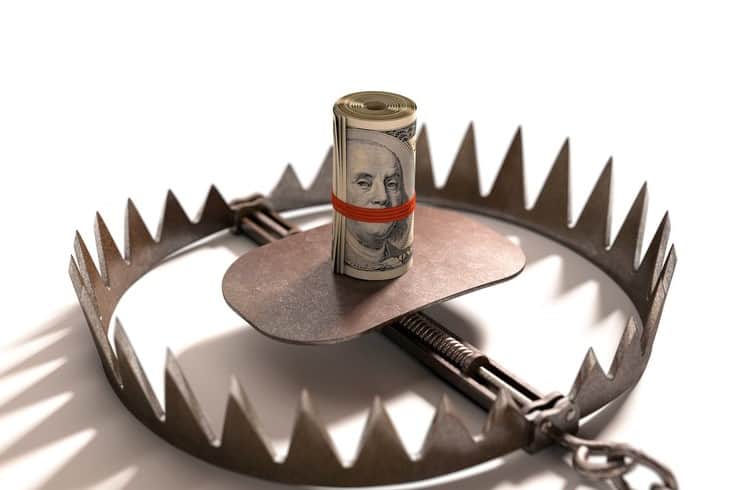
When you’ve spent your entire career diligently saving for retirement, the last thing you want is to get taken advantage of by a scammer and lose your hard-earned savings. However, many retirees are unaware of some of the most common scams they could face, putting themselves (and their money) at risk.
New research shows that the majority of adults age 65 and older are unaware of some of the most common scams often targeted at older Americans — and this mistake could potentially drain your retirement fund.
What do scams look like?
Fraudsters are becoming smarter and more sophisticated, so scams are not as easy to detect as they once were. They’re also becoming more expensive: The average scam victim loses around $30,000, according to a study from Allianz Life, and more than 10% of victims lose $100,000 or more.
To avoid falling victim to a scam, it’s crucial to understand what a scam looks like. That way, you can spot it a mile away before you give out any personal information.
However, a new survey from AIG and Morning Consult found most older adults are unfamiliar with some of the more common types of scams. More than half (52%) say they’ve never heard of the prepaid credit card scam, where unsuspecting adults are told they have an outstanding debt that needs to be paid using a prepaid credit card or debit card. Then, of course, once the scammer has access to your finances, they make off with your money.
Second, approximately 57% of older adults say they’re unaware of the invoice scam, where a scammer contacts a potential victim saying they work for a certain company (often a utility company) and that the victim owes a fee. Roughly 57% of older Americans also don’t know about the romance scam, in which a scammer will act as a romantic interest to the victim and then ask for money. Finally, 60% of older adults say they don’t know about the pigeon drop scam, when a scammer says that they have a significant amount of money that they’ll share with the victim if the victim makes an upfront payment.
This is nowhere near an exhaustive list of all the scams out there, as con artists are coming up with new ideas every day. But by being aware of some of the general traits of common scams, you can protect your money from thieves.
How to protect your cash from scammers
The number one rule for avoiding a scam is not to give out any money or personal information unless you’re 100% positive the person asking for it is legitimate. If it sounds fishy, it’s better to be safe than sorry and steer clear.
If you’re unsure, ask as many questions as you can. Scammers will likely feel uneasy if they think someone is onto their scheme, and if they can’t provide answers to your questions (or their answers don’t sound right), hang up and file a complaint with the Federal Trade Commission.
Sometimes scammers will pose as government employees in an attempt to seem more official, and you’ll need to be extra careful when dealing with these fraudsters. One of the fastest-growing scams involves scammers calling to say they’re from the Social Security Administration and that there’s a problem with your Social Security number. They may tell you it’s been compromised or involved in a crime, and you need to confirm your number over the phone. One of the reasons the scam is so effective is that the scammer will often “spoof” the caller ID system so that the Social Security Administration’s real phone number will pop up on your phone. That can trick victims into thinking the call is legitimate and providing any information the scammer asks for.
If a call from a so-called government official sounds suspicious, hang up and call the official agency’s phone number (not the number you received the call from). Tell them about the call you just received and ask if it’s legitimate before you give out any personal information. The Social Security Administration (and many other government offices) will never ask for your personal or financial information over the phone, so if you receive such a call, it’s safe to assume it’s a scam.
When it comes to your financial security, you can never be too careful. Even one wrong move can result in your losing thousands of dollars, and once the scammer has your money, there’s often little or nothing you can do to get it back. By taking preemptive measures to protect yourself against fraudsters, you can safeguard your savings.

